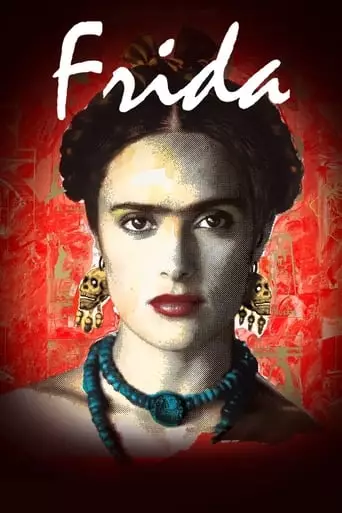Titus Andronicus returns from the wars and sees his sons and daughters taken from him, one by one. Shakespeare’s goriest and earliest tragedy. Titus is a 1999 film adaptation of William […]

Titus Andronicus returns from the wars and sees his sons and daughters taken from him, one by one. Shakespeare’s goriest and earliest tragedy. Titus is a 1999 film adaptation of William […]

A biography of artist Frida Kahlo, who channeled the pain of a crippling injury and her tempestuous marriage into her work. Frida, directed by Julie Taymor, is a biographical drama […]

When young dockworker Jude leaves Liverpool to find his estranged father in the United States, he is swept up by the waves of change that are re-shaping the nation. Jude […]
Julie Taymor: A Visionary Director Bridging Stage and Screen
Julie Taymor is a groundbreaking director celebrated for her imaginative storytelling and innovative visual style. Known for her work in both theater and film, Taymor has brought a unique artistic sensibility to projects ranging from Shakespearean adaptations to Broadway musicals and feature films. Her fearless approach to blending traditional and modern elements, as well as her use of puppetry, masks, and vivid imagery, has made her one of the most distinctive voices in contemporary storytelling.
From her Tony-winning direction of The Lion King on Broadway to her visually stunning films like Frida (2002) and Across the Universe (2007), Taymor’s work is a testament to her boundless creativity and commitment to pushing artistic boundaries.
Early Life and Influences
Julie Taymor was born on December 15, 1952, in Newton, Massachusetts. Her fascination with storytelling began at an early age, fueled by her exposure to world cultures and mythology. As a teenager, Taymor traveled extensively, studying traditional theater forms in Japan, Indonesia, and other countries. These experiences profoundly influenced her artistic style, particularly her use of masks, puppetry, and ritualistic storytelling.
Taymor studied at Oberlin College, where she majored in mythology and folklore, further deepening her interest in cross-cultural narratives. After graduation, she spent time in Indonesia with the American-Indonesian theater company Teatr Loh, where she developed her skills in mask-making and puppetry.
Theater: Redefining the Stage
The Lion King (1997)
Taymor achieved international acclaim with her direction of Disney’s The Lion King on Broadway. Premiering in 1997, the production reimagined the beloved animated film as a theatrical spectacle, featuring elaborate puppetry, stunning costumes, and innovative staging.
Taymor’s vision transformed the show into a global phenomenon, earning her two Tony Awards, including one for Best Direction of a Musical—the first woman to win in this category. Her groundbreaking work on The Lion King redefined what was possible in musical theater, blending African art, mythology, and music into a universal story of family and identity.
Other Theatrical Achievements
Taymor’s theatrical work extends beyond The Lion King. Her adaptation of Juan Darién: A Carnival Mass (1988) earned her a Tony nomination, and her productions of The Magic Flute and A Midsummer Night’s Dream showcased her ability to merge classical works with her unique visual language.
Film: A Cinematic Visionary
Titus (1999)
Taymor made her feature film debut with Titus, an adaptation of William Shakespeare’s Titus Andronicus. Starring Anthony Hopkins and Jessica Lange, the film combined ancient Roman settings with modern elements, creating a visually arresting and provocative interpretation of one of Shakespeare’s most violent plays.
Although divisive among critics, Titus demonstrated Taymor’s fearless approach to storytelling and her ability to translate her theatrical style to the screen.
Frida (2002)
Taymor’s biographical drama Frida chronicled the life of Mexican artist Frida Kahlo, played by Salma Hayek. The film explored Kahlo’s tumultuous relationships, political activism, and groundbreaking art, blending surrealist imagery with historical narrative.
Frida received critical acclaim and won two Academy Awards for Best Makeup and Best Original Score. Taymor’s direction was praised for its bold visual style and its celebration of Kahlo’s spirit and creativity.
Across the Universe (2007)
With Across the Universe, Taymor created a musical love story set to the songs of The Beatles. The film follows two lovers, Jude and Lucy, against the backdrop of the 1960s counterculture movement.
Known for its ambitious visual sequences and inventive use of music, Across the Universe divided critics but gained a devoted fanbase for its daring approach and heartfelt storytelling.
The Glorias (2020)
In The Glorias, Taymor tackled the life of feminist icon Gloria Steinem, using a nonlinear narrative and multiple actresses to portray Steinem at different stages of her life. Starring Julianne Moore and Alicia Vikander, the film blended realism with surrealist flourishes, reflecting Taymor’s signature style.
Style and Themes
Julie Taymor’s work is defined by its bold visual storytelling and thematic depth:
Myth and Archetype: Taymor frequently draws on mythology and folklore, creating stories that resonate on a universal level.
Visual Innovation: Her use of masks, puppetry, and striking imagery bridges the gap between traditional and contemporary art forms.
Strong Female Characters: From Frida Kahlo to Gloria Steinem, Taymor often focuses on women who challenge societal norms and embrace their individuality.
Cultural Fusion: Taymor’s work reflects her global influences, blending elements from various cultures into cohesive narratives.
Legacy and Influence
Julie Taymor’s contributions to theater and film have left an indelible mark on both mediums. Her groundbreaking work on The Lion King remains a benchmark for theatrical innovation, while her films continue to inspire discussions about art, identity, and storytelling.
Taymor’s fearless creativity and willingness to take risks have made her a role model for aspiring directors, particularly women seeking to break into male-dominated fields.
Conclusion
Julie Taymor’s career is a testament to the power of imagination and the importance of taking creative risks. Whether on stage or screen, her work challenges audiences to see the world through a different lens, blending the fantastical with the deeply human.
With a legacy that spans multiple artistic disciplines, Julie Taymor stands as a true visionary, proving that storytelling has no limits when guided by passion, innovation, and an unyielding commitment to artistic excellence.